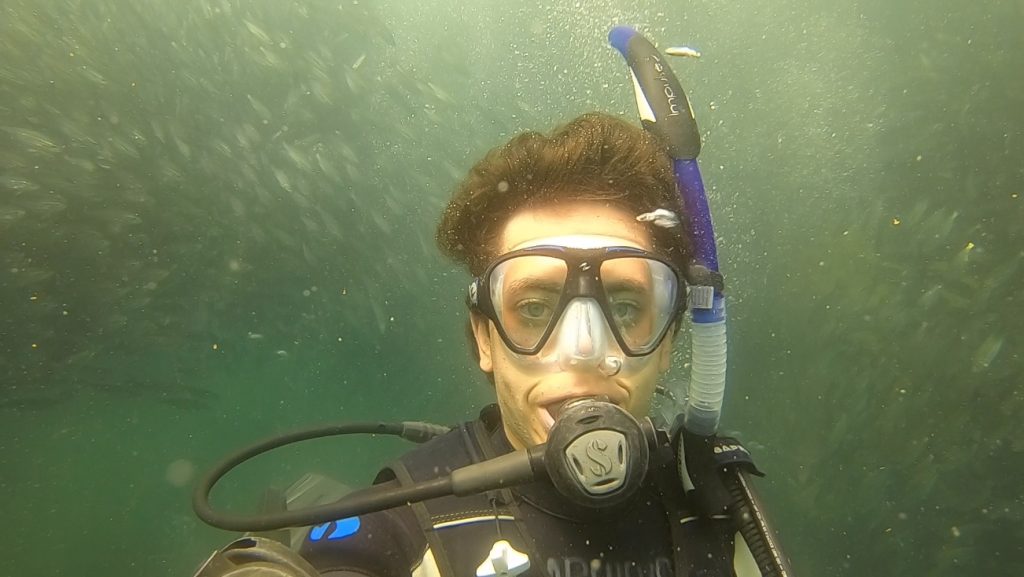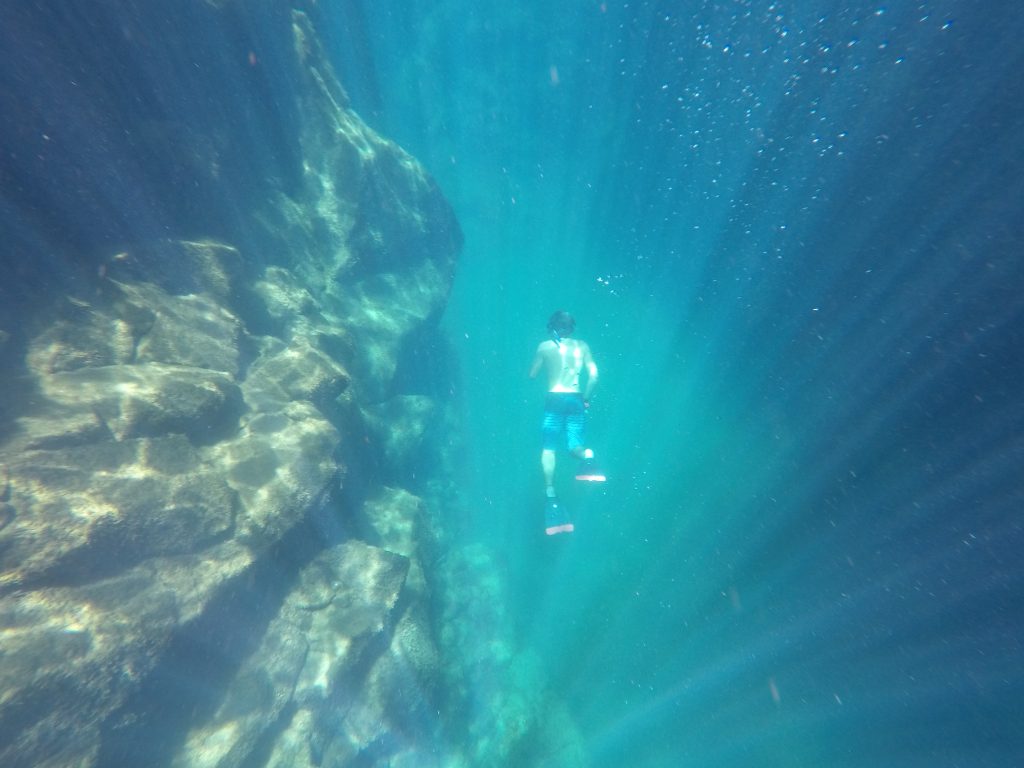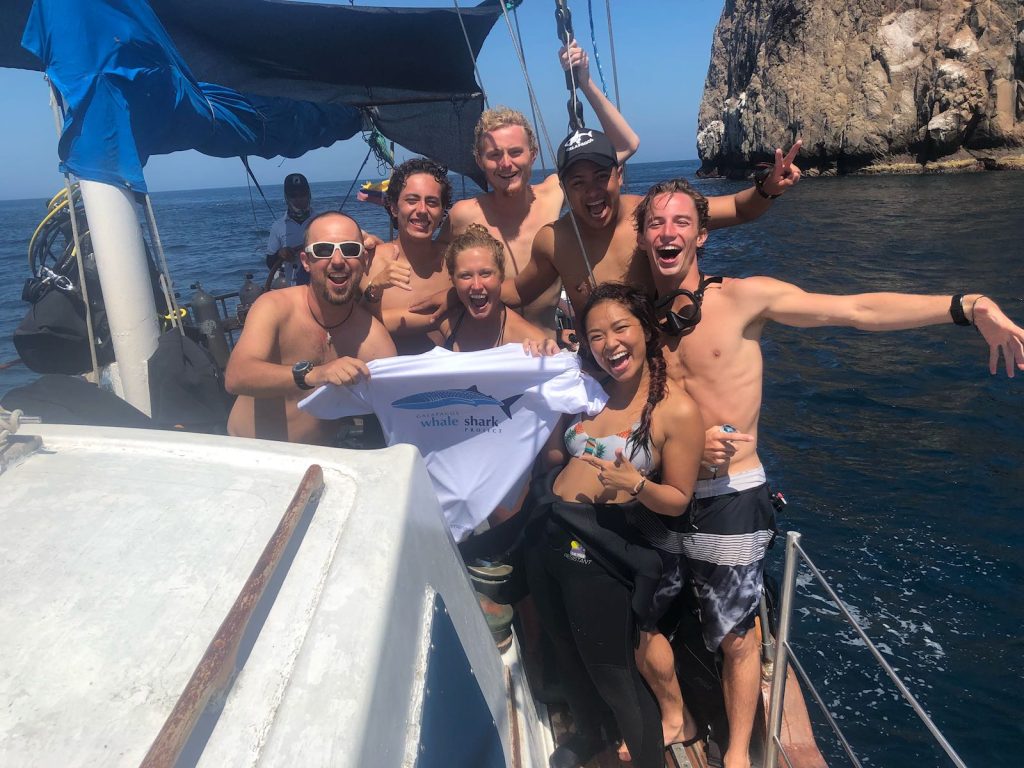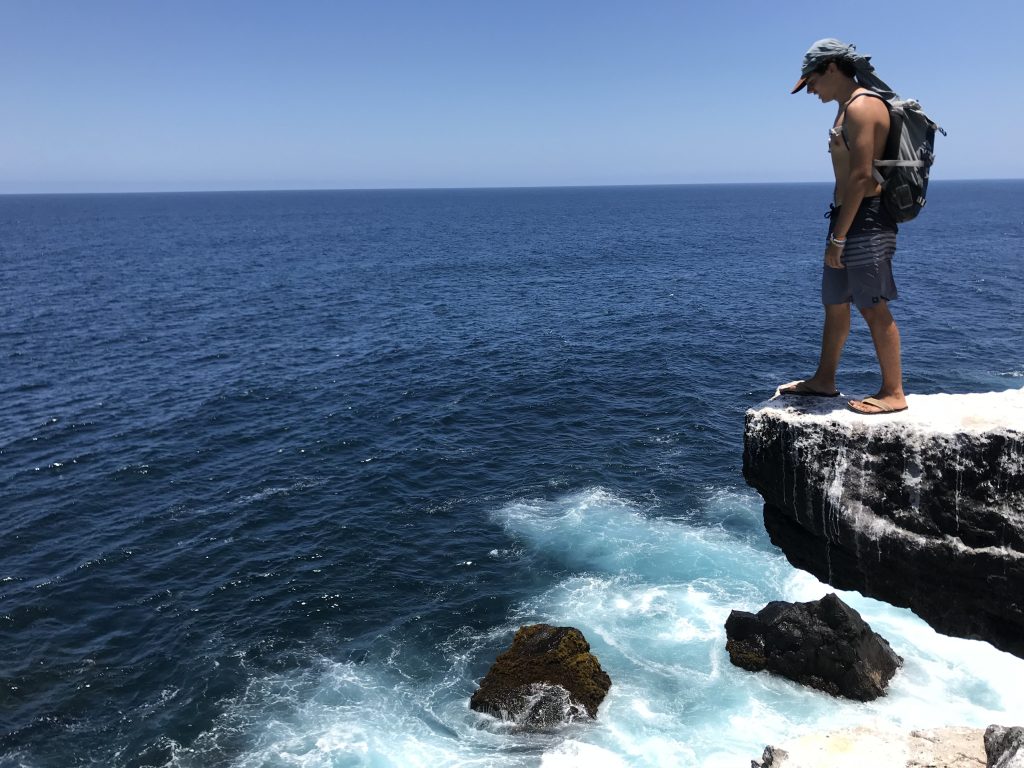Postcard from the Field: Galapagos – Kyle Oliveira ’20
July 1, 2018
Name: Kyle Oliveira
Major: Environmental Science
Expected graduation date: Spring 2020
Why did you want to go to the Galapagos?
It has always been a dream of mine to travel and see the islands at some point in my life. UNC provided the perfect opportunity for me to explore the islands while gaining experience in the field and completing major requirements. There was no way I could pass that up.
What specifically are you doing in the Galapagos?
From January through mid-May I was taking courses that lasted for three weeks at a time that would go towards completing my major requirements. The five courses that I took included techniques of marine research I and II, marine life, marine ecology and marine ecosystem based management. Each course provided the opportunity to dive two times, and I took advantage of personal dive opportunities myself. The last month I was on the islands, I spent my time conducting research on the spatial ecology of sea turtles as well as the impacts felt by the islands from increasing plastic pollution in the Pacific Ocean. The plastic research was completed alongside researchers from the University of Exeter in the UK. As a group we traveled around San Cristobal sifting sand for microplastics, surveying beaches for macro plastics, and doing plankton tows at the surface of the water to examine marine microplastics. Using scientific camera equipment and BORIS software, the sea turtle behavioral and spatial ecology research was done. The camera equipment was mounted to the carapace of the turtle and behaviors such as strokes, breaths, eating and sleeping behaviors, and interactions with other turtles and different species were recorded. Using breathing and stroke patterns, stress levels using different release methods were analyzed and reason for continued research were evident from the results that were observed.
What has been the most impactful experience you’ve had while in the Galapagos?
One of the most impactful experiences I had in the Galapagos would be working with the plastics research with the University of Exeter representatives. To see the pollution, as bad as it was, in an area where so many people are conservationally minded, was extremely eye opening to the impacts humans have on the world. Although there were negatives in that research, there were also a lot of positives; plenty of people are putting in the effort to help clean up our oceans and the islands specifically. Families spend their weekends cleaning up beaches, captains of boats fill their vessels with trash collected on beaches, researchers and community leaders bring awareness to alternatives to single use plastics, and lead weekly clean up initiatives at various beaches in neighborhoods. To see the large impact a small community can have is absolutely incredible and truly inspires me to strive and make changes in my life that benefit our environment.
What is the biggest lesson you’ve taken away from your experience in the Galapagos?
The biggest lesson I have been able to take away from my experience in the Galapagos is to be open to all ideas. During my 5 month period taking classes, I took part in 5 research projects with different groups of students who brought different ideas to the table. Being open to different opinions pushed me out of my comfort zone and forced me to work harder and research different ideas. Ultimately, being open to new ideas made me a better researcher and a better scientist.
Do you have any advice for other students who are considering going to the Galapagos?
My advice to students considering going to the Galapagos would be to, first of all, go! It is an unbelievable experience where you will meet the most amazing people and do things you would never imagine. Secondly, my advice once you are there would be to take advantage of every experience possible. Go to the beach with your friends even if it is the fifth time that week or the second time that day. The experience will not be the same. And if you are able to, get dive certified, it is one of the most renowned dive spots in the world and you will not want to miss out. You might even spot a whale shark (or three)!
Do you have anything else to share?
Get to really know your professors while studying abroad. They are some of the top researchers in their field and conduct amazing research. If you get the chance, ask to assist in their research in any way possible, you will have some amazing experiences and this trip will be unforgettable, savor every moment because, before you know it, you will be on the plane home.



